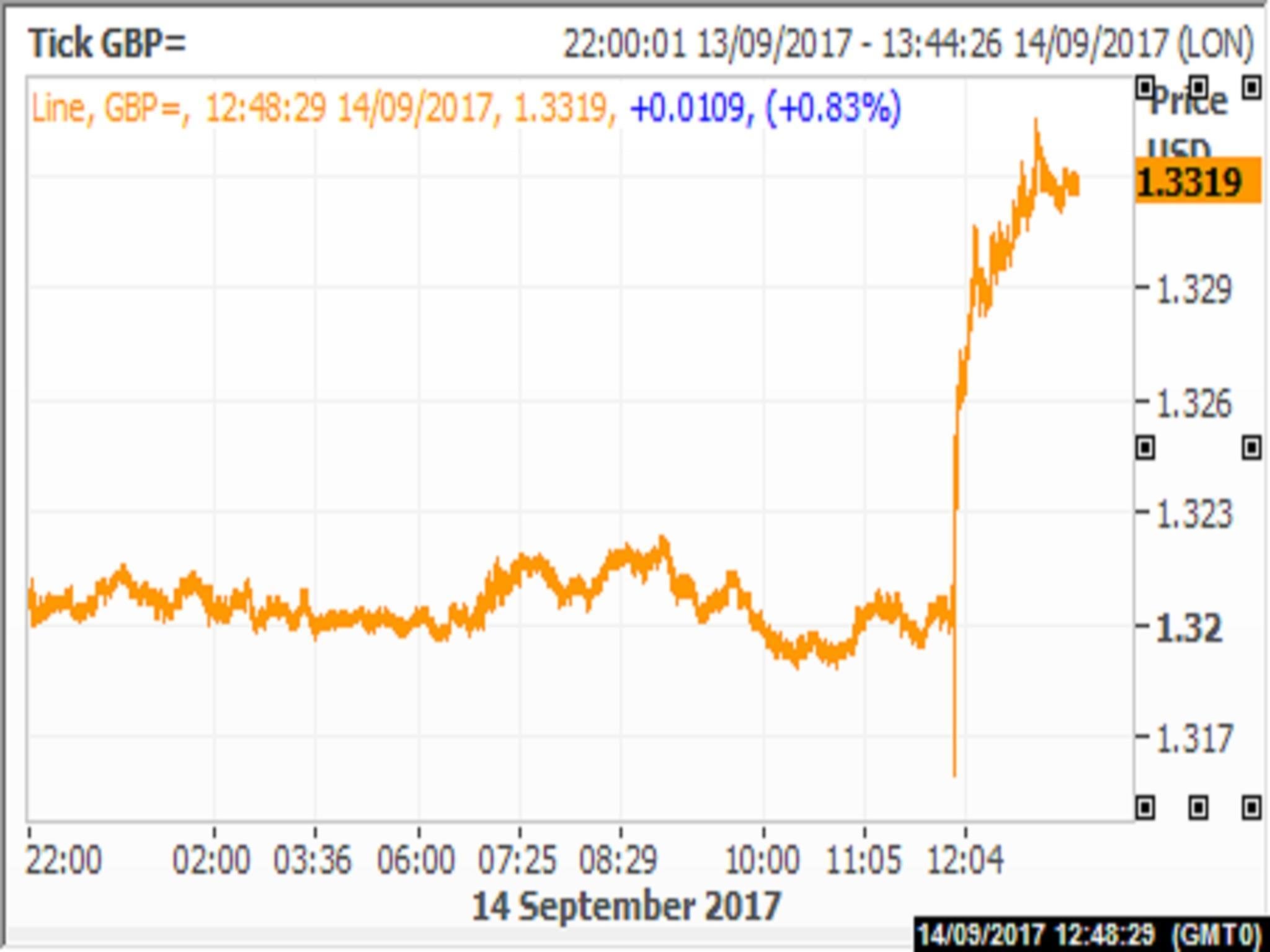Don't be fooled by the sterling boom – the glory days of the pound are over
More clarity on Brexit looks improbable in the short term, so why would investors – especially from abroad – be tempted to buy back in to UK assets any time soon?

Sun-seeking Europhiles and import-dependent company bosses have certainly had worse weeks.
On Thursday, a punchy set of minutes from the Bank of England indicated that Mark Carney and his esteemed band of policy makers was finally gearing up to raise interest rates for the first time in over a decade. Christmas had come early for the beleaguered pound, still nursing double-digit losses since that fateful day in June 2016.
Then on Friday, monetary policy committee member Gertjan Vlieghe – who as recently as July told The Independent that a rate rise would be “premature” and a “mistake” – supercharged the rally.
“The evolution of the data is increasingly suggesting that we are approaching the moment when [the] bank rate may need to rise,” he said. Sterling leapt to its highest level in 15 months against the US dollar. At close of trading on Friday, it had enjoyed its best week since February 2009 and one analyst pointed out that it had only enjoyed three bigger weekly rises in the past 40 years.
Currencies tend to benefit from higher interest rates so the moves are far from surprising. But if this week’s market has raised hopes of a cheap getaway to the Costa del Sol next year, you’d be wise to hold off cancelling that holiday cottage on the Sussex coast or similar. The pound’s pummelling is not over.
Financial markets are incredibly fickle and often suffer from mole-like shortsightedness. The prices of stocks, currencies, bonds and commodities frequently bounce around dramatically on the thinnest slither of news, before ending up back exactly where they started. And while it’s an accepted truth that a bump in interest rates would – in normal circumstances – support sterling, there’s nothing normal about the situation we’re in.
Researchers at UniCredit said that what the Bank of England has done supports their view that the currency will continue to strengthen in the short term. “Our long-term view, however, remains bearish.” Despite increasing odds of a rate hike later this year or early in 2018, they still say that such a move would be a “policy mistake” considering the wider state of the economy. Wage growth is lagging well below inflation. If data in the coming weeks proves lacklustre and the Bank of England becomes more pessimistic – something that’s not exactly unlikely – Carney could change his tune swiftly.
And even if the committee does decide to act, a rate rise would do nothing to marginalise the fact that we’re hurtling full-pelt towards Brexit with no roadmap in sight.

Immense uncertainty surrounding the terms of the split is what sent the currency sliding in the first place. More clarity looks improbable in the short term, so why would investors – especially from abroad – be tempted to buy back in to any UK asset any time soon?
Because lofty inflation would be the main motivation for action, some economists and forecasters even think the snappy messaging in the Bank of England’s minutes was a sneaky attempt to talk up the pound and thereby curb that inflation. The theory goes that moderating inflation would then take pressure off the bank to act.
If that scheme – though perhaps far-fetched – emerges to be true, then we’d have yet another reason to call off the pound’s party.
It was the French who summarised it perhaps most succinctly: “Sterling has rallied strongly in recent weeks,” strategists at Societe Generale said. “But it is not sustainable in our view.”

What’s also worth considering is that some of the pound’s perceived muscle last week was actually a function of the dollar’s softness – meaning that the climb was sort of cosmetic, if you will.
A trade-weighted index of the pound, which measures it against a whole host of other currencies, shows that it’s still down over 10 per cent since the Brexit vote, even though its fall against the dollar has moderated to around 8 per cent (from more than 14 per cent earlier in September).
The dollar’s been plagued by worries linked to Hurricane Irma and North Korea. But it’s showing signs of stabilising – even if it does seem too early to talk about a full-blown recovery.
And then there’s the euro.

Rubbing salt in our Brexit-inflicted wounds, the bloc’s single currency has charged ahead of late, boosted by robust data. Official figures showed last week that wages grew at their fastest rate in two years during the second quarter of the year.
A few weeks ago we were talking about the prospect of the pound slumping to parity against the euro for the first time in the single-currency’s relatively short but decidedly eventful history.
Some traders seem to have scrapped those forecasts this week. But leading economists at a handful of big banks still think that we’ll get there later this year or early next. It was nice while it lasted, but there are more reasons that we need to conclude that the pound’s glory days are obviously numbered.
Join our commenting forum
Join thought-provoking conversations, follow other Independent readers and see their replies
Comments
Bookmark popover
Removed from bookmarks